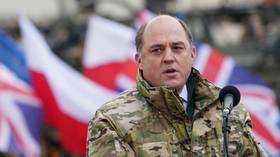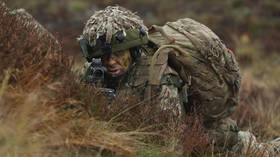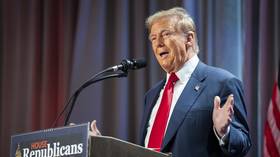UK Army will grow – defence secretary

British Defence Secretary Ben Wallace said on Wednesday that, with both candidates for prime minister promising spending hikes, the size of the British Army will likely increase. The military “needs more money,” he said, citing Russia’s military operation in Ukraine.
"I think defense needs more money because the threat has gone up and I'm threat-led," Wallace told Sky News. The UK currently spends around 2.3% of its GDP on defense, and Wallace has previously lobbied Prime Minister Boris Johnson to increase this figure, claiming that Russia poses a “direct and pressing threat to Europe.”
However, with the British Army moving toward drones and electronic warfare, government policy currently plans for a drop in troop numbers from 82,000 to 72,500 by 2025. Meanwhile, defense spending is slated to fall below 2% of GDP in 2026, with Wallace telling Sky that this dropoff will see Britain “go from the first [biggest defense spender] in Europe to eighth… and carry on falling.”
Both Liz Truss and Rishi Sunak, who are competing to succeed Johnson as prime minister and leader of the Conservative Party, have promised to stem this decline. Truss has vowed to hike spending to 3% of GDP by 2030, while Sunak has been more cautious, saying military expenditure will rise to 2.5% “over time.”
Wallace suggested that he would back whichever candidate comes out stronger on defense. Asked how Truss’ promised 3% would affect the size of the army, he said certain equipment would likely be bought faster, while more money would be spent on counter-drone warfare and missile defense.
"The lessons from Ukraine are… you are better off having small but perfectly formed armored infantry units… than you are having lots and lots of vehicles with none of those protections because they just get killed on a modern battlefield,” he said.
“I think you would see an increase in the numbers of the army, but not necessarily where people think,” he added, saying that numbers would be increased where “relevant.”
The military leadership will ultimately decide how to allocate the budget, and Wallace said Ukraine’s experience against Russian forces would be studied by the top brass to determine Britain’s vulnerabilities.
The UK defense establishment has been squarely focused on Russia of late, with the country’s new armed forces commander explicitly stating last month that British troops must prepare “to fight in Europe once again” and “defeat Russia in battle.” Meanwhile, the UK has already spent £2.3 billion ($2.7 billion) on weapons and training for Kiev’s military since February – equivalent to 5% of Britain’s 2021 military budget.













